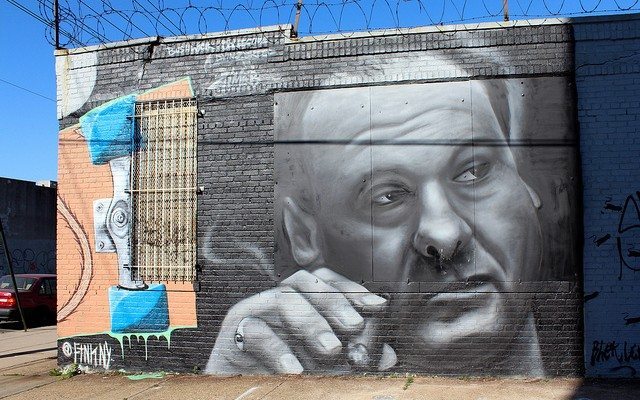
News
The Friendly Neighborhood Mobster?
After evading authorities for nearly two decades, former mobster Enrico Ponzo will finally get his day in court on October 7, 2013. Ponzo, referred to by the Boston Globe as a “wannabe gangster,” is best known for attempting to murder Francis “Cadillac Frank” Salemme in 1989. In a superseding indictment released on January 31, 2013, he has been charged with 18 counts of racketeering, drug trafficking, witness tampering, as well as other charges. This indictment tacks more crimes onto an original 1997 indictment that includes attempted murder, intent to distribute drugs, extortion, and forfeiture.
This case will not garner nearly as much attention as the Whitey Bulger trial earlier this year, but it will offer a look into the life of a mobster—a subculture that has become so oddly romanticized by media darlings such as The Sopranos, The Godfather trilogy, and Scarface.
Ponzo’s case offers a completely different look at what it means to be a member of the mob scene. Unlike the household names of Bulger, Al Capone, or John Gotti, Enrico Ponzo was a mid-level lackey at best. In the 1980s, as a teenager, Ponzo was swept into the infighting that occurred in the New England Patriarca crime family. The Patriarca family, an almost exclusively Italian crime network based in Boston and Providence, rose to prominence in the 1950s and took on the nickname “La Cosa Nostra.” Their leader, Raymond Patriarca died in 1984 and his second in command Jerry Angiulo was sent to prison in 1986. In the years that followed, the family suffered an organizational crisis.
“Cadillac Frank” Salemme, a prominent member of the Patriarca family operation, was one of the options to take over the network, but his partly Irish heritage and strong connections to rival Irish gangs worried some members. Put simply, two factions developed-one led by Joseph Russo, the other led by Frank Salemme. The fierce infighting that ensued almost led to Salemme’s death when he was shot outside an IHOP in 1989 by a group of armed men. Ponzo is accused of being part of that group.
According to the FBI, Salemme became the de facto head of the Patriarca family in 1991, but the war between his faction and Russo’s waged on. Ponzo was one of Russo’s loyalists, and under his tenure may have committed a number of nefarious acts. In 1994 Ponzo fled New England to avoid arrest.
Ponzo spent approximately the next 16 years on the lam, hiding in the town of Marsing, Idaho under the name Jay Shaw. In some ways, he was hiding in plain sight—in a town of just over 1,000 people, it’s impossible to stay completely anonymous. He worked as a cattle rancher, and his 2011 arrest sent shockwaves through the town. According to the Boston Globe, his 80-year-old neighbor Bob Briggs stated, “I don’t think anybody in Marsing could think he’d hurt anyone, not here anyway.”
After his trial in the U.S. District Court of Massachusetts this week, Ponzo may also face charges in Idaho. When arrested, it was discovered that he had a firearm store of approximately 30 weapons in his Idaho home. The Idaho indictment also alleges other counts, such as identity theft. This case will not be dealt with until the Massachusetts trial has been finished.
In many ways, the Italian mafia’s real power has diminished greatly over the last 20-30 years. The FBI has cracked down on mob bosses in all the major centers of power: Chicago, New York, and Boston. But a different sort of Italian mafia has arisen since the turn of the century—one that exists purely in the sphere of pop culture. When James Gandolfini passed away in June of 2013, the nation mourned such a talented actor. The first sentence of a Washington Post blog post by Brad Hirschfeld read, “Mourning a mobster – a man whose life was predicated on intimidation, extortion and murder – may seem odd. Odder still, when the mobster in question is a fictional character. But with the sudden death of James Gnadolfini that is exactly what millions of people, including me, are doing.”
Romanticizing the mob—a network of organizations that survived on murder, extortion, drug dealing, and other crimes, has become the norm. But Ponzo’s case, the case of a petty criminal, reminds us that such a culture does not consist purely of plots, games, and critically acclaimed series finales.
—
Featured image courtesy of [Wally Gobetz via Flickr]








Comments